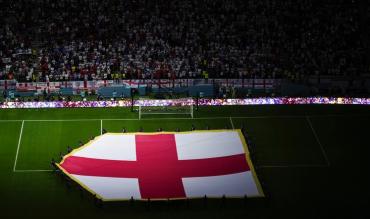In the great scheme of things, 1989 doesn’t seem such an awfully long time ago, but in footballing terms it was an entirely different universe.
On September 6th of that year England were in Stockholm, playing Sweden in a crucial World Cup qualifier. It was a fixture Bobby Robson’s men were not fancied to win in the sports betting with the Scandinavians topping the group from the get-go.
Early in the first-half, the visitor’s captain for the evening Terry Butcher rose to head clear a speculative punt up-field but, challenged by an opposing striker, the Rangers star lost his bearings a little mid-air.
In doing so, Butcher missed the ball and essentially butted at full force the back of the Swede’s head.
Unsurprisingly from such a hard blow, blood started to pour from a freshly opened wound and here we encounter the first big disparity between then and now because these days a bloodied player, dazed and floored by a head injury would not see another minute of action.
But this was 1989. Pre the Premier League. Before medical staff inhabited the dug-out. Prior to common sense and due care.
The defender was hastily bandaged up by England’s physio and patted on the backside. On you go, son. On you go.
At half-time, after several more headed clearances and all manner of skirmishes, the wound was so bad that John Crane, England’s doctor, struggled to stitch him up, struggled to find the origin of the bloodflow.
Just five stitches were put in before a cacophony of studs on concrete outside the medical room meant it was time to head for the pitch.
On his way, Butcher encountered his manager who gave him the once-over. “You’re fine. Get on with it.”
If that comes across as harsh or unsympathetic from Sir Bobby, it should be noted it would have taken a foolhardy man to deny the then-31-year-old from re-entering the fray.
A battle-scarred centre-back from the school of hard knocks, Butcher was as much a warrior as he was a footballer. Having spent his career putting his body on the line, it’s safe to assume he was in his element.
Still, as far as the game went, if live betting had been around back then a bet on the hosts would have been wholly justified. Not only were Sweden bossing proceedings but at the back for England was a player who looked like he had just stumbled from the fields of Agincourt.
And it got worse for Butcher too, much worse, as he stubbornly insisted on heading every ball that came his way, even when his chest would have sufficed, or a high boot.
At the end of a stoic 0-0 draw, his shirt looked like England’s away number while the claret on his face would have had a horror film make-up artist believe they had pushed their luck.
If from all of the above there are several more instances where the past contrasts sharply from today’s realities, there is a final abstract distinction to consider.
Because in the here and now we have evolved far beyond lionising blood and thunder, for want of a better word, passion. We have stopped viewing international commitments as wars and we’re all the better for it.
But back then, technical ability was distrusted and bravery was the benchmark. On the front and back of every newspaper the following morning therefore, Butcher was cast as a national hero.
He even secured an endorsement for his troubles, supplied with four bumper boxes of washing powder that he still mentions in interviews today in gratitude.
1989 really was an awfully long time ago.
*Credit for all of the photos in this article belongs to AP Photo*



